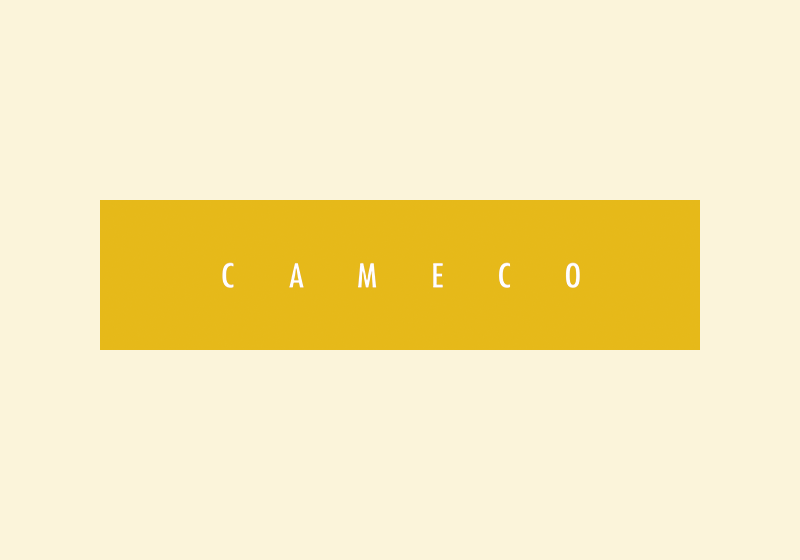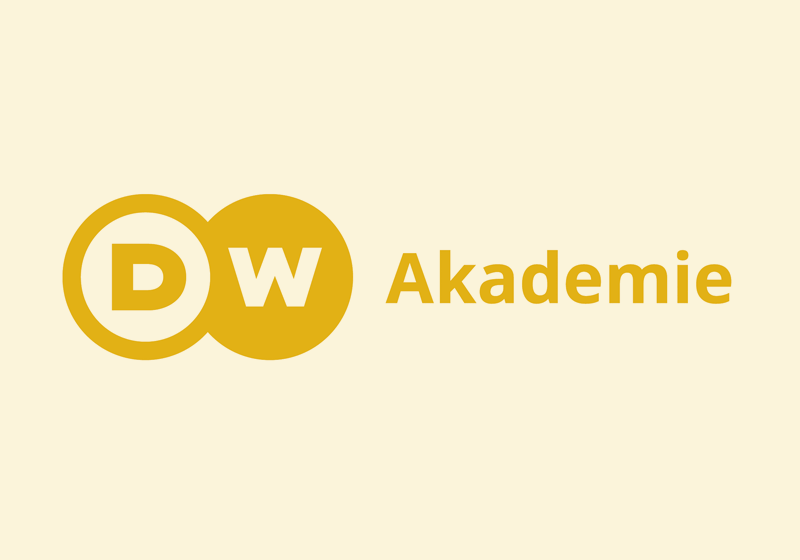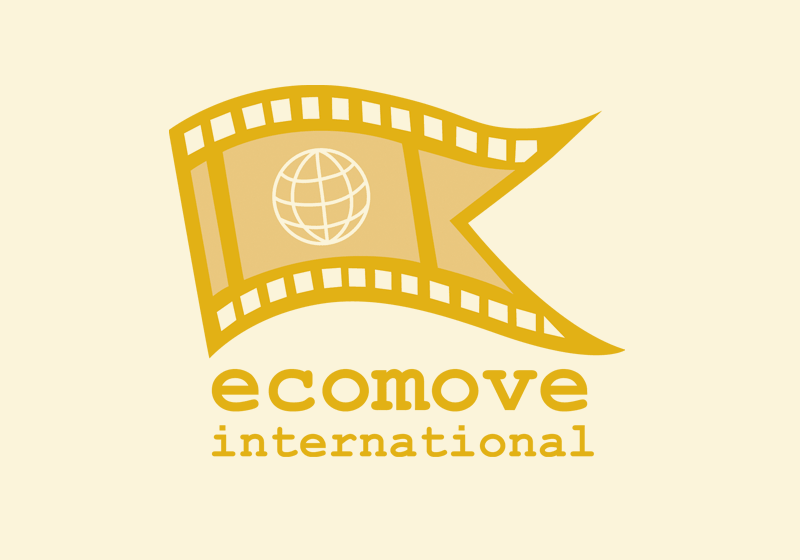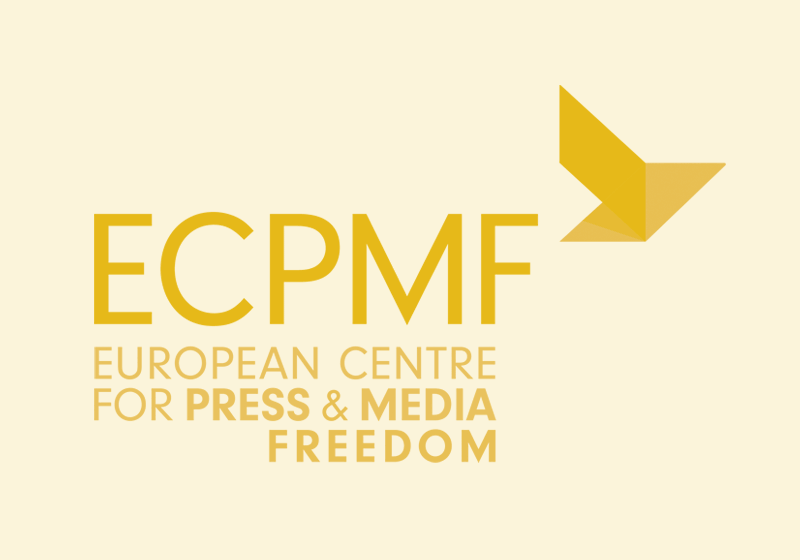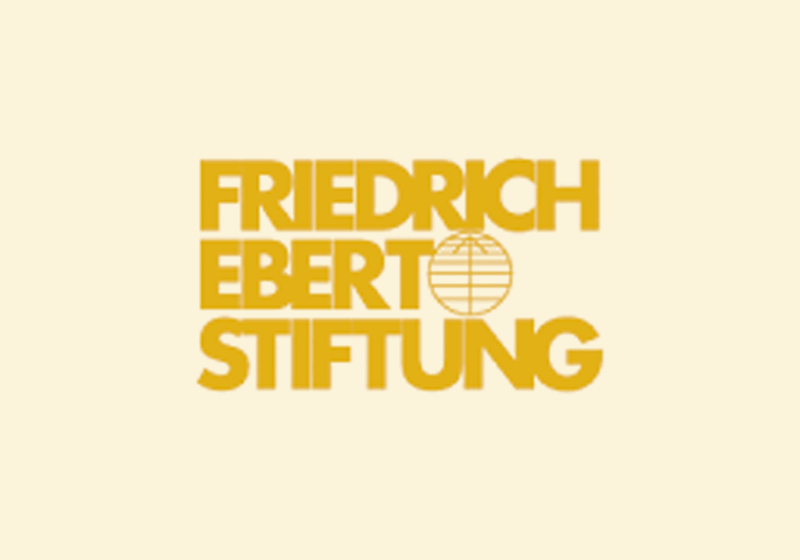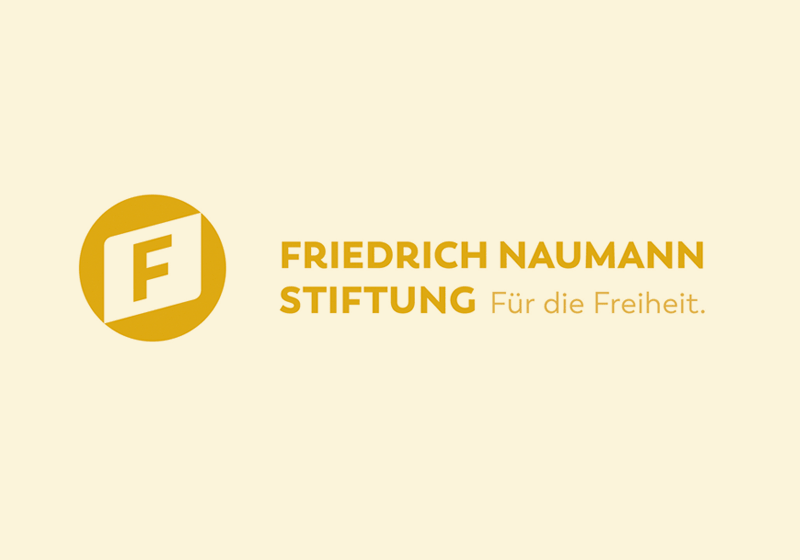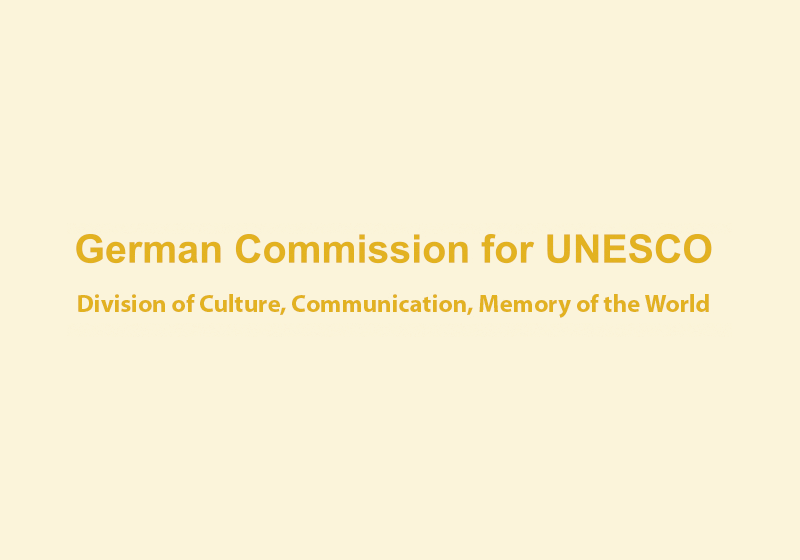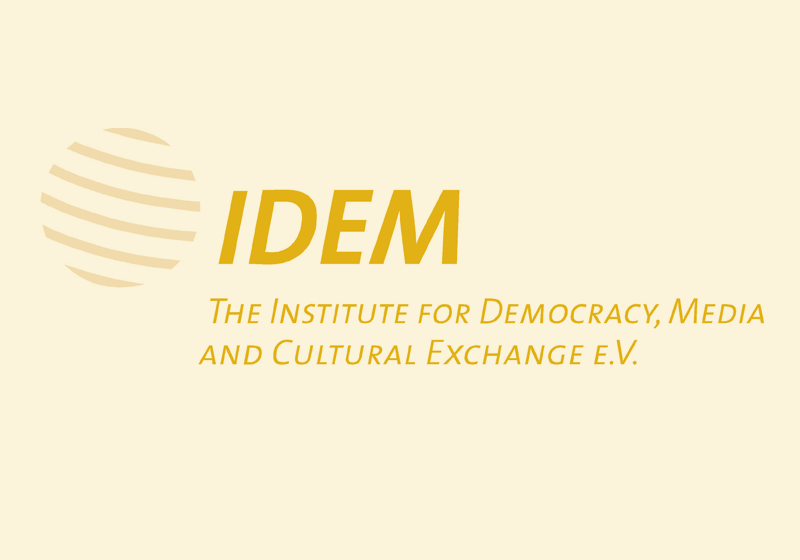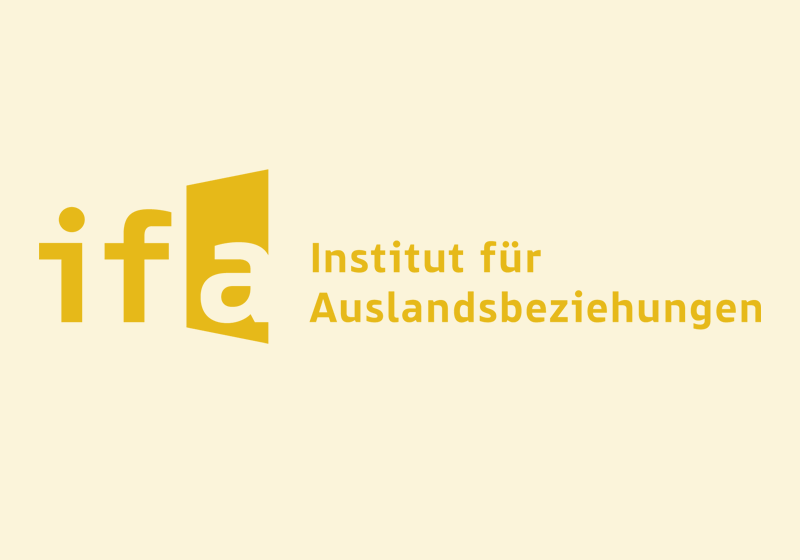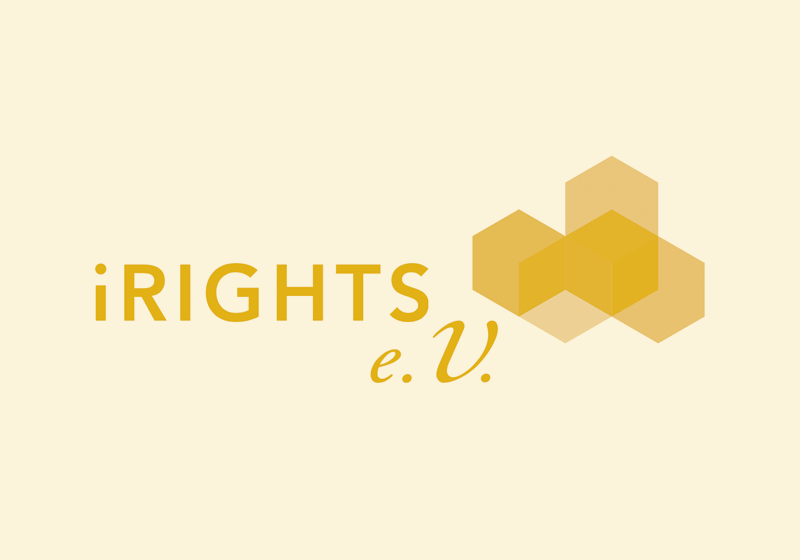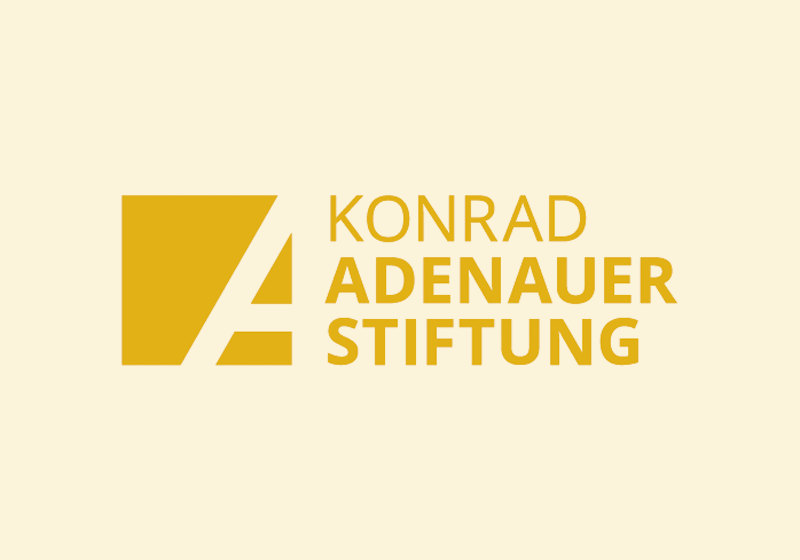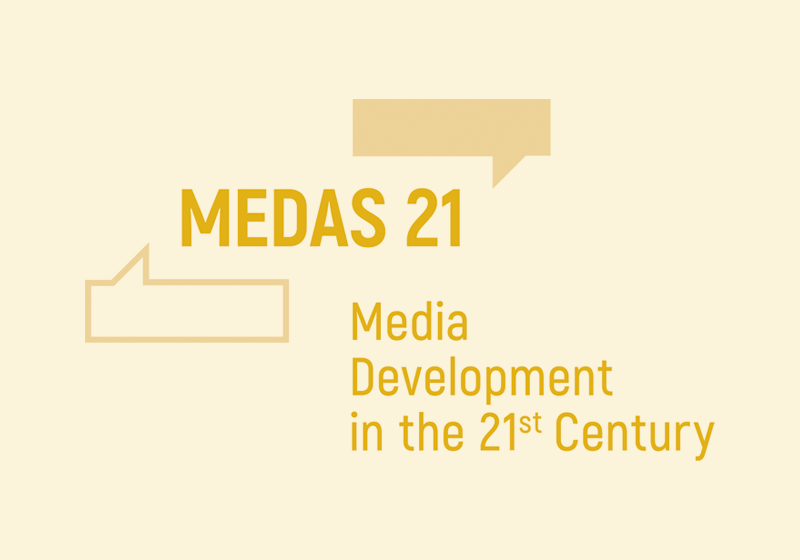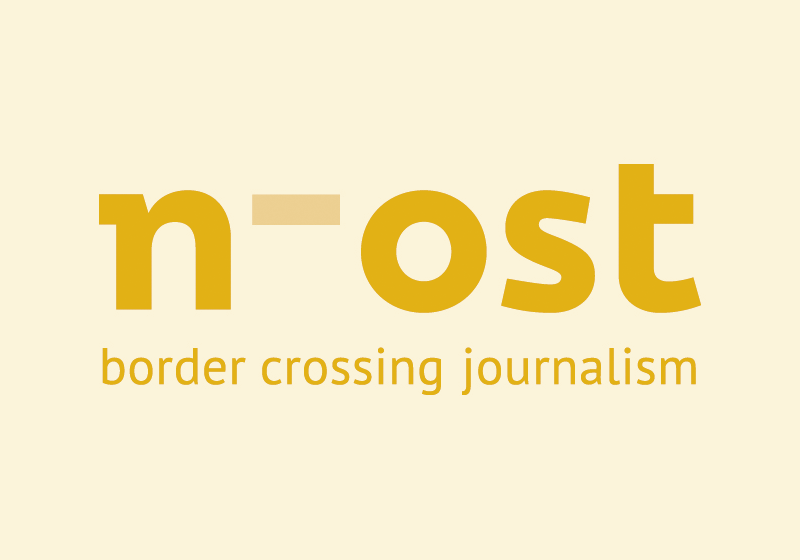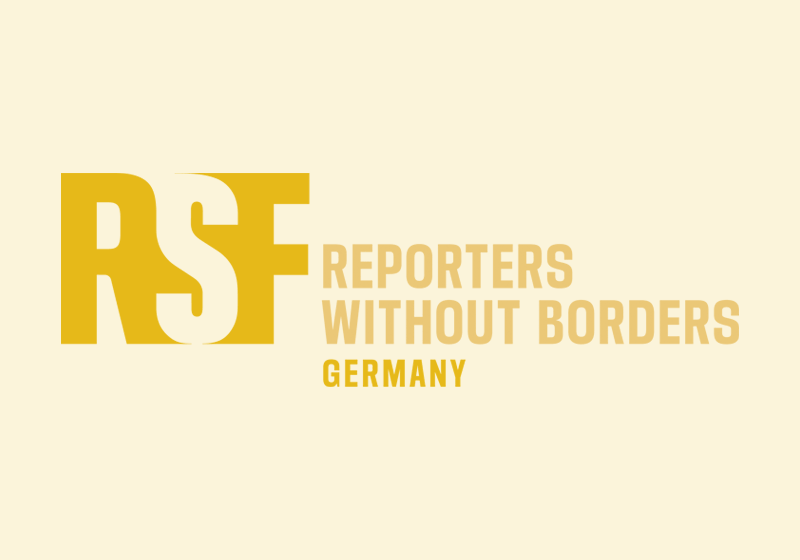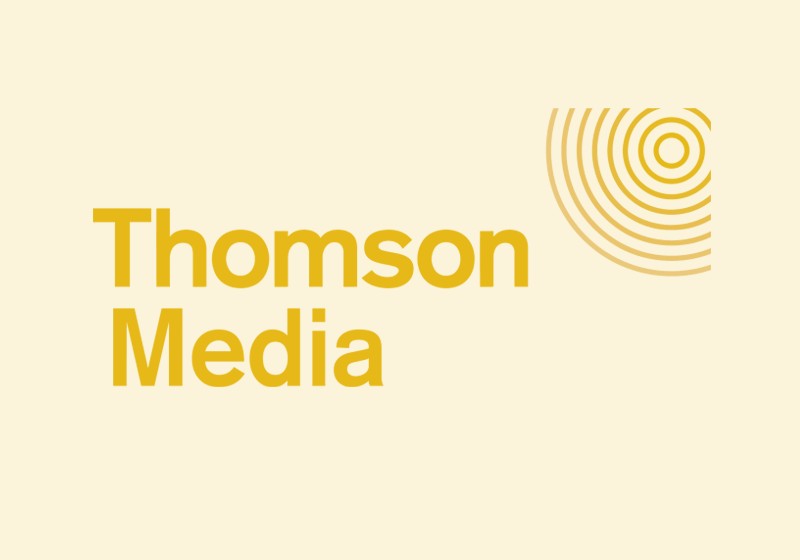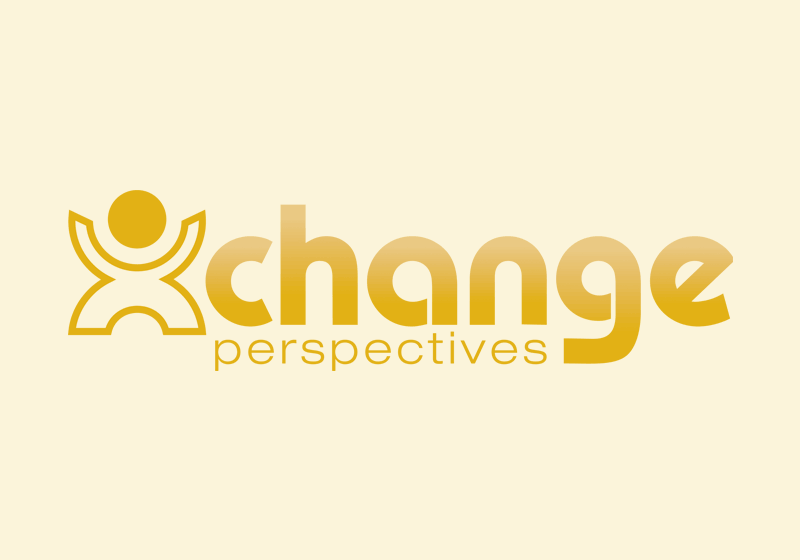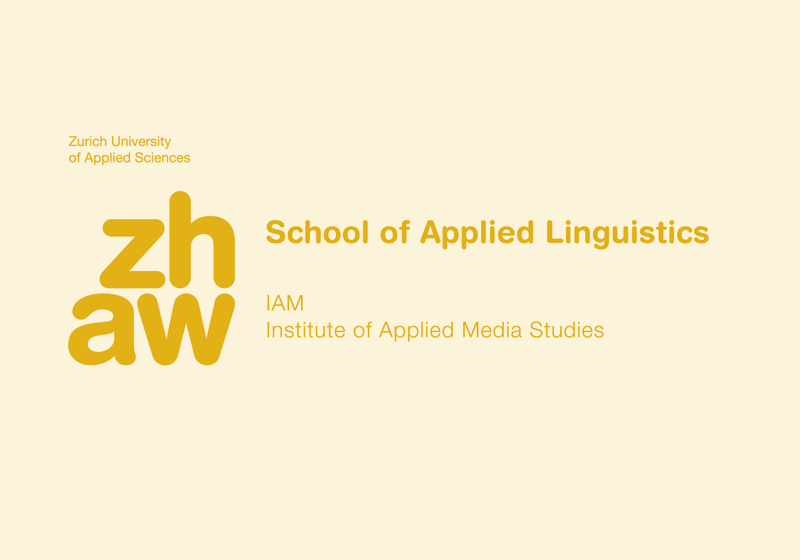Speakers
 Susan Abbott is the Director of Cross-Pollinate Consulting Solutions, a Denver, Colorado basedcompany that brings together a diverse range of ideas, expertise and experiences in support of media development and internet freedom programs around the world. We work with non-profits, academic institutions, donors, and companies to help craft meaningful approaches to research, fundraising/development, program evaluation, organizational capacity building and strategic planning of programs designed to support freedom of expression and access to information. Abbott has worked with a range of media development, press freedom and digital rights organizations, including Albany Associates, the Center for International Media Assistance, the Global Forum for Media Development, Free Press Unlimited, ICFJ, IMS, Internews, IREX, and Media Legal Defence Initiative. Abbott is a co-editor of International Media Development: Historical Perspectives and New Frontiers.
Susan Abbott is the Director of Cross-Pollinate Consulting Solutions, a Denver, Colorado basedcompany that brings together a diverse range of ideas, expertise and experiences in support of media development and internet freedom programs around the world. We work with non-profits, academic institutions, donors, and companies to help craft meaningful approaches to research, fundraising/development, program evaluation, organizational capacity building and strategic planning of programs designed to support freedom of expression and access to information. Abbott has worked with a range of media development, press freedom and digital rights organizations, including Albany Associates, the Center for International Media Assistance, the Global Forum for Media Development, Free Press Unlimited, ICFJ, IMS, Internews, IREX, and Media Legal Defence Initiative. Abbott is a co-editor of International Media Development: Historical Perspectives and New Frontiers.
 Elena Abrusci is a Senior Research Officer for the Human Rights, Big Data and Technology project (HRBDT) at the Human Rights Centre and School of Law, University of Essex (UK). She currently works on the impact of new technologies on human rights and the challenges to regulation, with a special focus on the online information disorder and ethical AI. She has been engaging with businesses, NGOs and UN agencies on the identification of and responses to the human rights implications of misinformation, disinformation and fake news. Abrusci holds a PhD in Law with a focus on regional human rights systems and she previously worked as a consultant for the WHO and several NGOs. Her research featured in leading human rights journals.
Elena Abrusci is a Senior Research Officer for the Human Rights, Big Data and Technology project (HRBDT) at the Human Rights Centre and School of Law, University of Essex (UK). She currently works on the impact of new technologies on human rights and the challenges to regulation, with a special focus on the online information disorder and ethical AI. She has been engaging with businesses, NGOs and UN agencies on the identification of and responses to the human rights implications of misinformation, disinformation and fake news. Abrusci holds a PhD in Law with a focus on regional human rights systems and she previously worked as a consultant for the WHO and several NGOs. Her research featured in leading human rights journals.
 Payal Arora is an author, consultant, founder and professor at Erasmus University Rotterdam. She is a digital anthropologist. Her expertise lies in digital media and user experiences among low-income communities worldwide and comes with more than a decade of fieldwork experience in such contexts. She is the author of a number of books including the award-winning ‘Leisure Commons’ and most recently the “The Next Billion Users” with Harvard Press. The tech blog, Engadget stated that her Harvard book is one of “the most interesting, thought provoking books on science and technology we can find.” Forbes named her as the “next billion champion” and the right kind of person to reform tech. Several international media outlets have covered her work including the BBC, The Economist, Tech Crunch, The Boston Globe, F.A.Z, The Nation and CBC. She has consulted on tech innovation for diverse organizations such as UNESCO, KPMG, GE, and HP and has given more than a 160 talks in 40 countries including a TEDx talk on the future of the internet. She is the founder of Catalyst Lab, a digital activism organization and sits on several boards such as Facebook SS1 Asia Committee, Columbia University Earth Institute and World Women Global Council in New York. She was born in India, is American and Irish and lives in Amsterdam. She considers herself a global citizen.
Payal Arora is an author, consultant, founder and professor at Erasmus University Rotterdam. She is a digital anthropologist. Her expertise lies in digital media and user experiences among low-income communities worldwide and comes with more than a decade of fieldwork experience in such contexts. She is the author of a number of books including the award-winning ‘Leisure Commons’ and most recently the “The Next Billion Users” with Harvard Press. The tech blog, Engadget stated that her Harvard book is one of “the most interesting, thought provoking books on science and technology we can find.” Forbes named her as the “next billion champion” and the right kind of person to reform tech. Several international media outlets have covered her work including the BBC, The Economist, Tech Crunch, The Boston Globe, F.A.Z, The Nation and CBC. She has consulted on tech innovation for diverse organizations such as UNESCO, KPMG, GE, and HP and has given more than a 160 talks in 40 countries including a TEDx talk on the future of the internet. She is the founder of Catalyst Lab, a digital activism organization and sits on several boards such as Facebook SS1 Asia Committee, Columbia University Earth Institute and World Women Global Council in New York. She was born in India, is American and Irish and lives in Amsterdam. She considers herself a global citizen.
 Florian Bauer is an award-winning, investigative, political journalist, TV anchorman, and coach. As a reporter for the biggest German TV station ARD, he travelled the world and uncovered several scandals in the field of doping, FIFA, and human rights & major sporting events. As anchorman on ARD’s political TV subsidiary PHOENIX, he reports on international news and interviews politicians on topics around the globe. He produced several political documentaries and was one of the first to report on the FIFA world cup in Qatar and the abuse of workers; his arrest during one of his visits broke international headlines. He interviewed the president of Gabon and Honduras, reported about authoritarian regimes like Belarus, Russia, China or Equatorial Guinea, and scooped the IOC’s failure of retesting the Athens 2004 Olympic doping samples which led to five Olympic athletes loosing their medals. He is a regular guest on international TV & radio programs such as CNN, HBO, or BBC. He teaches investigative journalism, interview techniques, film-making and moderation at universities and journalism schools throughout Europe. He has won several of the most prestigious investigative journalism awards in Germany, among them the Grimme Prize and the German Television Prize (Deutscher Fernsehpreis). He has lived in New York, Madagascar, Australia, South Africa and Colombia.
Florian Bauer is an award-winning, investigative, political journalist, TV anchorman, and coach. As a reporter for the biggest German TV station ARD, he travelled the world and uncovered several scandals in the field of doping, FIFA, and human rights & major sporting events. As anchorman on ARD’s political TV subsidiary PHOENIX, he reports on international news and interviews politicians on topics around the globe. He produced several political documentaries and was one of the first to report on the FIFA world cup in Qatar and the abuse of workers; his arrest during one of his visits broke international headlines. He interviewed the president of Gabon and Honduras, reported about authoritarian regimes like Belarus, Russia, China or Equatorial Guinea, and scooped the IOC’s failure of retesting the Athens 2004 Olympic doping samples which led to five Olympic athletes loosing their medals. He is a regular guest on international TV & radio programs such as CNN, HBO, or BBC. He teaches investigative journalism, interview techniques, film-making and moderation at universities and journalism schools throughout Europe. He has won several of the most prestigious investigative journalism awards in Germany, among them the Grimme Prize and the German Television Prize (Deutscher Fernsehpreis). He has lived in New York, Madagascar, Australia, South Africa and Colombia.
 Asad Baig is a journalist, and a digital rights advocate from Pakistan. He is the founder and director of Media Matters for Democracy, one of Pakistan’s leading media development organisations. He is also the founder of the Media Lab, the country’s only incubator for tech-based & digital media startups. He is a computer programmer by education, and writes regularly for Digital Rights Monitor, and the News. He is also the lead of an upcoming national TV show ‘Tech Talk’.
Asad Baig is a journalist, and a digital rights advocate from Pakistan. He is the founder and director of Media Matters for Democracy, one of Pakistan’s leading media development organisations. He is also the founder of the Media Lab, the country’s only incubator for tech-based & digital media startups. He is a computer programmer by education, and writes regularly for Digital Rights Monitor, and the News. He is also the lead of an upcoming national TV show ‘Tech Talk’.
 Likhita Banerji works as a Researcher for Amnesty International’s ‘Technology and Human Rights’ Programme. She is involved in researching the use of technology, including AI, against human rights defenders in the global south. Currently, she is researching the use of targeted surveillance technologies to stifle dissent. She has extensively studied online hate speech and disinformation against women and migrants in India. Previously, she also researched and exposed challenges faced by human rights defenders in India and worked extensively on hate crimes in the country. Banerji has worked with a number of human rights organisations in India and elsewhere. She is passionate about ensuring that technological innovations respect and protect human rights.
Likhita Banerji works as a Researcher for Amnesty International’s ‘Technology and Human Rights’ Programme. She is involved in researching the use of technology, including AI, against human rights defenders in the global south. Currently, she is researching the use of targeted surveillance technologies to stifle dissent. She has extensively studied online hate speech and disinformation against women and migrants in India. Previously, she also researched and exposed challenges faced by human rights defenders in India and worked extensively on hate crimes in the country. Banerji has worked with a number of human rights organisations in India and elsewhere. She is passionate about ensuring that technological innovations respect and protect human rights.
 Saad Chinoy is a professional geek with a passion for technology and open source philosophy. He conceptualizes tech solutions for Tusitala (“Storyteller”) Digital Publishing, a Potato Productions Company in Singapore, and has been developing digital solutions that leverage smart-phone interactivity to create unique user experiences for storytelling while also working with augmented reality, virtual reality, and stop-motion animation. Chinoy also volunteers globally with several non-profits and is a self-confessed coffee-maker and coffee snob.
Saad Chinoy is a professional geek with a passion for technology and open source philosophy. He conceptualizes tech solutions for Tusitala (“Storyteller”) Digital Publishing, a Potato Productions Company in Singapore, and has been developing digital solutions that leverage smart-phone interactivity to create unique user experiences for storytelling while also working with augmented reality, virtual reality, and stop-motion animation. Chinoy also volunteers globally with several non-profits and is a self-confessed coffee-maker and coffee snob.
 Prue Clarke is Senior Executive Officer at the Judith Neilson Institute for Journalism and Ideas, an international journalist and media development specialist whose reporting and commentary have appeared in the Washington Post, The Guardian, Foreign Policy and the BBC. She created and led BBC Media Action radio programming during the Ebola crisis in West Africa. Clarke co-founded New Narratives, an NGO supporting independent and investigative journalism in Africa. She was Director of International Reporting at the Newmark Graduate School of Journalism at the City University of New York. She started her career as a cadet in the Australian Broadcasting Corporation Sydney television newsroom and later reported in the New York bureau of the Financial Times.
Prue Clarke is Senior Executive Officer at the Judith Neilson Institute for Journalism and Ideas, an international journalist and media development specialist whose reporting and commentary have appeared in the Washington Post, The Guardian, Foreign Policy and the BBC. She created and led BBC Media Action radio programming during the Ebola crisis in West Africa. Clarke co-founded New Narratives, an NGO supporting independent and investigative journalism in Africa. She was Director of International Reporting at the Newmark Graduate School of Journalism at the City University of New York. She started her career as a cadet in the Australian Broadcasting Corporation Sydney television newsroom and later reported in the New York bureau of the Financial Times.
 Naomi Colvin is UK Program Director at Blueprint for Free Speech, an international NGO based that specialises in a range of freedom of expression issues, including whistleblower protection, the right to publish, government transparency, data privacy and internet freedom. She specialises in issues relating to digital whistleblowing: the impact of new technologies on journalism and public interest disclosure and the changing landscape for source protection. Colvin holds an MSc from the London School of Economics.
Naomi Colvin is UK Program Director at Blueprint for Free Speech, an international NGO based that specialises in a range of freedom of expression issues, including whistleblower protection, the right to publish, government transparency, data privacy and internet freedom. She specialises in issues relating to digital whistleblowing: the impact of new technologies on journalism and public interest disclosure and the changing landscape for source protection. Colvin holds an MSc from the London School of Economics.
 Peter Deselaers is a journalist and media development expert. He worked for Reuters, German public broadcasters and newspapers, and joined Deutsche Welle in 2007. He has worked for DW Akademie as a consultant, trainer and project manager in Asia, Latin America and Africa, and from 2010 to 2013 worked with local radios and universities in Bolivia. He was head of Akademie’s Concepts and Methods from 2014 to 2018, consulting on development policy and freedom of expression. Since 2018 he is DW Akademie Country Representative in the Office in Windhoek. The project works in Namibia and Southern Africa on media and information literacy, journalism education and viability as well as advocacy for freedom of expression and access to information.
Peter Deselaers is a journalist and media development expert. He worked for Reuters, German public broadcasters and newspapers, and joined Deutsche Welle in 2007. He has worked for DW Akademie as a consultant, trainer and project manager in Asia, Latin America and Africa, and from 2010 to 2013 worked with local radios and universities in Bolivia. He was head of Akademie’s Concepts and Methods from 2014 to 2018, consulting on development policy and freedom of expression. Since 2018 he is DW Akademie Country Representative in the Office in Windhoek. The project works in Namibia and Southern Africa on media and information literacy, journalism education and viability as well as advocacy for freedom of expression and access to information.
 Dóra Diseri is a Berlin-based Hungarian journalist and project lead of the European cross-border grant program “Reporters in the Field” at n-ost (Network for Reporting on Eastern Europe). She previously worked for various international media programs of both the Robert Bosch Stiftung and the Bosch Alumni Network. She is passionate about cross-border journalism, including as a reporter herself. She regularly covers Hungarian issues for international media and German internal affairs for Hungarian media outlets. Until October 2018, she was the Berlin correspondent for the Hungarian news channel HírTV. She studied journalism, cultural and Eastern-European studies in Budapest, Leipzig and Berlin. Before moving to Berlin in 2012, she worked as a multimedia journalist and reporter in the news department of the Hungarian Public Television (MTVA) in Budapest.
Dóra Diseri is a Berlin-based Hungarian journalist and project lead of the European cross-border grant program “Reporters in the Field” at n-ost (Network for Reporting on Eastern Europe). She previously worked for various international media programs of both the Robert Bosch Stiftung and the Bosch Alumni Network. She is passionate about cross-border journalism, including as a reporter herself. She regularly covers Hungarian issues for international media and German internal affairs for Hungarian media outlets. Until October 2018, she was the Berlin correspondent for the Hungarian news channel HírTV. She studied journalism, cultural and Eastern-European studies in Budapest, Leipzig and Berlin. Before moving to Berlin in 2012, she worked as a multimedia journalist and reporter in the news department of the Hungarian Public Television (MTVA) in Budapest.
 Salomé Eggler works for the German Development Agency GIZ and advises the Federal Ministry of Economic Cooperation and Development (BMZ) on digital rights issues. Before joining GIZ she worked for the United Nations Department of Economic and Social Affairs in New York and the UN High Commissioner for Refugees in Geneva. She holds a Master’s degree in International Affairs.
Salomé Eggler works for the German Development Agency GIZ and advises the Federal Ministry of Economic Cooperation and Development (BMZ) on digital rights issues. Before joining GIZ she worked for the United Nations Department of Economic and Social Affairs in New York and the UN High Commissioner for Refugees in Geneva. She holds a Master’s degree in International Affairs.
 Audrey Gadzekpo, Ph.D., is an Associate Professor at the Department of Communication Studies, University of Ghana, Legon and Dean of the School of Information and Communication Studies. She has more than 25 years of experience in teaching, research and advocacy on media, gender and governance, and has also worked as a journalist. Her research encompasses the nexus between media and issues such democracy and governance, gender, development, climate change and emerging zoonotic diseases. She also researches on media histories and popular culture. She recently co-edited a special issue journal on Journalism and Foreign Aid in Africa (African Journalism Studies, vol 39:2) and another on the history of Ghanaian radio and the culture of literary broadcasts (Obsidian vol. 44 issue 2). She currently chairs the board of Panos West Africa (PIWA) and serves on the boards of West African Democracy Radio (WADR), Center for Democratic Development (CDD-Ghana) and the Continental Supervisory Board of Solidaridad.
Audrey Gadzekpo, Ph.D., is an Associate Professor at the Department of Communication Studies, University of Ghana, Legon and Dean of the School of Information and Communication Studies. She has more than 25 years of experience in teaching, research and advocacy on media, gender and governance, and has also worked as a journalist. Her research encompasses the nexus between media and issues such democracy and governance, gender, development, climate change and emerging zoonotic diseases. She also researches on media histories and popular culture. She recently co-edited a special issue journal on Journalism and Foreign Aid in Africa (African Journalism Studies, vol 39:2) and another on the history of Ghanaian radio and the culture of literary broadcasts (Obsidian vol. 44 issue 2). She currently chairs the board of Panos West Africa (PIWA) and serves on the boards of West African Democracy Radio (WADR), Center for Democratic Development (CDD-Ghana) and the Continental Supervisory Board of Solidaridad.
 Catherine Gicheru is an International Center for Journalists Fellow working with Code for Africa’s Academy and Communities Programme. She is the pan-African lead of WanaData, a network of women data journalists and data scientists. Code for Africa is the continent’s largest network of indigenous civic technology and open data laboratories, with affiliate labs in 10 African countries and funded project partnerships in a further 12 countries. Gicheru is a veteran journalist with two of the leading media organizations in the region; she was the first woman bureau chief and the first female news editor of the Nation Media Group and was the founding editor of the daily newspaper, the Star. She co-founded PesaCheck, East Africa’s budget, and public finance fact-checking and verification initiative. Gicheru is a Nieman Fellow at Harvard University, a Reuters Institute Journalism fellow at Oxford University, and a 1992 IWMF Courage in Journalism award winner.
Catherine Gicheru is an International Center for Journalists Fellow working with Code for Africa’s Academy and Communities Programme. She is the pan-African lead of WanaData, a network of women data journalists and data scientists. Code for Africa is the continent’s largest network of indigenous civic technology and open data laboratories, with affiliate labs in 10 African countries and funded project partnerships in a further 12 countries. Gicheru is a veteran journalist with two of the leading media organizations in the region; she was the first woman bureau chief and the first female news editor of the Nation Media Group and was the founding editor of the daily newspaper, the Star. She co-founded PesaCheck, East Africa’s budget, and public finance fact-checking and verification initiative. Gicheru is a Nieman Fellow at Harvard University, a Reuters Institute Journalism fellow at Oxford University, and a 1992 IWMF Courage in Journalism award winner.
 Verena Glanos studied English language and literature, psychology, art and design. She joined broadcaster ZDF in 2005 and spent eight years as editor for the “logo!” children’s program. During this time, she published a number of books for young readers explaining, for example, Germany’s national elections, and life before and after the Wall. In October 2017, she became the editor of ZDF’s new constructive documentary series “plan b”.
Verena Glanos studied English language and literature, psychology, art and design. She joined broadcaster ZDF in 2005 and spent eight years as editor for the “logo!” children’s program. During this time, she published a number of books for young readers explaining, for example, Germany’s national elections, and life before and after the Wall. In October 2017, she became the editor of ZDF’s new constructive documentary series “plan b”.
 Daniela Goeller is a German cultural manager, art historian and publicist. She has lived and worked in France and South Africa. 2004-2007 she was the responsible editor of Photography Now in Paris and in 2012 she co-founded the non-profit urban dance organization Impilo Mapantsula in Johannesburg. She has been working for the Culture Counts Foundation since 2018 and leads the project “Studio Mozaïk” in Ivory Coast.”c
Daniela Goeller is a German cultural manager, art historian and publicist. She has lived and worked in France and South Africa. 2004-2007 she was the responsible editor of Photography Now in Paris and in 2012 she co-founded the non-profit urban dance organization Impilo Mapantsula in Johannesburg. She has been working for the Culture Counts Foundation since 2018 and leads the project “Studio Mozaïk” in Ivory Coast.”c
 Paula Hidalgo-Sanchis works as Innovations Advisor at the United Nations Global Pulse Network. She has done extensive research on the use of Big Data and Artificial Intelligence for social good and led the UN Global Pulse Lab in Kampala, Uganda for 5 years. Hidalgo-Sanchis has worked as humanitarian and development practitioner for 19 years based in Africa, Asia and the Americas. She has worked as Manager of Innovations, Social Policy Advisor and Analyst within the UN and a private foundation. She holds a PhD in Geography and is passionate about developing frontier technology innovations for human development and ethical frameworks to facilitate adoption.
Paula Hidalgo-Sanchis works as Innovations Advisor at the United Nations Global Pulse Network. She has done extensive research on the use of Big Data and Artificial Intelligence for social good and led the UN Global Pulse Lab in Kampala, Uganda for 5 years. Hidalgo-Sanchis has worked as humanitarian and development practitioner for 19 years based in Africa, Asia and the Americas. She has worked as Manager of Innovations, Social Policy Advisor and Analyst within the UN and a private foundation. She holds a PhD in Geography and is passionate about developing frontier technology innovations for human development and ethical frameworks to facilitate adoption.
 Max Hoppenstedt is a journalist covering the intersection of politics and technology. His topics include Hacking, Cybersecurity, Privacy, right-wing extremism on the web and governing Tech-Platforms. He was the editor in chief of the German edition of the technology magazine Motherboard and is currently working as a reporter for Süddeutsche Zeitung and other German media.
Max Hoppenstedt is a journalist covering the intersection of politics and technology. His topics include Hacking, Cybersecurity, Privacy, right-wing extremism on the web and governing Tech-Platforms. He was the editor in chief of the German edition of the technology magazine Motherboard and is currently working as a reporter for Süddeutsche Zeitung and other German media.
 Nesrine Jelalia is the Executive Director of Al Bawsala, a leading democracy-promoting Tunisian watchdog of parliament, local authorities and public finances and that seeks to ensure people’s access to information as a means of holding decision-makers accountable. Prior that, she worked with the United Nations Population Fund towards ensuring effective youth participation as well as well as with Oxfam, defending women’s rights across the MENA region whether in times of peace or war. In 2017 she also worked in Iraq during the war with ISIS.defending Women’s Rights with Oxfam, whether in times of peace or war. In 2017 she also worked in Iraq during the war with ISIS.
Nesrine Jelalia is the Executive Director of Al Bawsala, a leading democracy-promoting Tunisian watchdog of parliament, local authorities and public finances and that seeks to ensure people’s access to information as a means of holding decision-makers accountable. Prior that, she worked with the United Nations Population Fund towards ensuring effective youth participation as well as well as with Oxfam, defending women’s rights across the MENA region whether in times of peace or war. In 2017 she also worked in Iraq during the war with ISIS.defending Women’s Rights with Oxfam, whether in times of peace or war. In 2017 she also worked in Iraq during the war with ISIS.
 Guido Keel is the director of the Institute for Applied Media Science in Winterthur, Switzerland and professor for journalism and communication. His 2011 dissertation examined the change of the journalistic profession over time. He has for several years been dealing with questions of journalistic performance, journalism ethics, and change in journalism, and particularly regarding the influence of the Internet and social media on journalism. He has also researched the role and function of the media in various non-Western contexts.
Guido Keel is the director of the Institute for Applied Media Science in Winterthur, Switzerland and professor for journalism and communication. His 2011 dissertation examined the change of the journalistic profession over time. He has for several years been dealing with questions of journalistic performance, journalism ethics, and change in journalism, and particularly regarding the influence of the Internet and social media on journalism. He has also researched the role and function of the media in various non-Western contexts.
 Lê Trung Khoa is a Vietnamese exiled journalist who has been living in Germany since 1992. Having studied art in both Hanoi and later at the Weimar University, he founded the news page Thoibao.de in 2010, where he regularly reports about political and social developments in Vietnam. Given the lack of independent media in Vietnam, Lê Trung Khoa, like millions of other Vietnamese citizens, use Facebook as a platform to interact and share news. Due to his outspoken criticism of the Vietnamese government, Lê Trung Khoa and a large number of other journalists and activists have increasingly been targeted by the Vietnamese cyber-army. For this reason, Thoibao.de and Reporters Without Borders Germany have been working together since 2018 to support Vietnamese Facebook users in safeguarding press freedom and freedom of expression online.
Lê Trung Khoa is a Vietnamese exiled journalist who has been living in Germany since 1992. Having studied art in both Hanoi and later at the Weimar University, he founded the news page Thoibao.de in 2010, where he regularly reports about political and social developments in Vietnam. Given the lack of independent media in Vietnam, Lê Trung Khoa, like millions of other Vietnamese citizens, use Facebook as a platform to interact and share news. Due to his outspoken criticism of the Vietnamese government, Lê Trung Khoa and a large number of other journalists and activists have increasingly been targeted by the Vietnamese cyber-army. For this reason, Thoibao.de and Reporters Without Borders Germany have been working together since 2018 to support Vietnamese Facebook users in safeguarding press freedom and freedom of expression online.
 Edith Kimani is a television news presenter with the German international broadcaster, Deutsche Welle (DW). She is currently the East Africa correspondent, travelling and covering a broad spectrum of issues across Africa for DW’s Africa flagship TV magazine, The 77 Percent, which serves as a platform for Africa’s youth. Kimani previously worked as a news anchor and field reporter for the Kenya Television Network (KTN), travelling through various parts of Kenya filing humaninterest stories. In her 10-year career she has produced and covered a broad range of news and current affairs. She is a seasoned moderator who has sat on global panels the world over. Kimani is a CNN journalism Fellow.
Edith Kimani is a television news presenter with the German international broadcaster, Deutsche Welle (DW). She is currently the East Africa correspondent, travelling and covering a broad spectrum of issues across Africa for DW’s Africa flagship TV magazine, The 77 Percent, which serves as a platform for Africa’s youth. Kimani previously worked as a news anchor and field reporter for the Kenya Television Network (KTN), travelling through various parts of Kenya filing humaninterest stories. In her 10-year career she has produced and covered a broad range of news and current affairs. She is a seasoned moderator who has sat on global panels the world over. Kimani is a CNN journalism Fellow.
 Paul Kimumwe works as Senior Program Officer – Research and Advocacy at the Collaboration on ICT Policy for East and Southern Africa (CIPESA). He is a media trainer and researcher with over 15 years’ experience in journalism, media development, and human rights advocacy. His professional interests include media policy and regulation, freedom of expression, and digital rights. He is the author of Media Regulation and Practice in Uganda: A Journalists Handbook, and Djibouti: Media and the Law. Kimumwe has previously worked with PATH as a Communications and Advocacy Officer, the African Center for Media Excellence as a Program Officer for the Media Grants and Fellowship, ARTICLE 19 Eastern Africa as a Senior Program Officer for Freedom of Expression and Panos Eastern Africa as a Regional Program Coordinator. He holds a Master’s degree in Communication Studies from the University of Nairobi, Kenya, and a Bachelor’s in Mass Communication from Makerere University, Uganda.
Paul Kimumwe works as Senior Program Officer – Research and Advocacy at the Collaboration on ICT Policy for East and Southern Africa (CIPESA). He is a media trainer and researcher with over 15 years’ experience in journalism, media development, and human rights advocacy. His professional interests include media policy and regulation, freedom of expression, and digital rights. He is the author of Media Regulation and Practice in Uganda: A Journalists Handbook, and Djibouti: Media and the Law. Kimumwe has previously worked with PATH as a Communications and Advocacy Officer, the African Center for Media Excellence as a Program Officer for the Media Grants and Fellowship, ARTICLE 19 Eastern Africa as a Senior Program Officer for Freedom of Expression and Panos Eastern Africa as a Regional Program Coordinator. He holds a Master’s degree in Communication Studies from the University of Nairobi, Kenya, and a Bachelor’s in Mass Communication from Makerere University, Uganda.
 Sarah Klein is co-founder and editor-in-chief of online magazine Tea after Twelve. The webzine’s team of international authors has shared inspiring solutions and social innovations since 2014, and Tea after Twelve was recognized as an exceptional European web magazine just a few months after going live. It reaches readers in more than 180 countries. A journalist, PR expert and co-founder of the Bunny Island communications agency, Klein advises ministries, public institutions and companies on communications, editing and design. She holds workshops worldwide on constructive journalism and serves as a juror, identifying social innovation projects for awards.
Sarah Klein is co-founder and editor-in-chief of online magazine Tea after Twelve. The webzine’s team of international authors has shared inspiring solutions and social innovations since 2014, and Tea after Twelve was recognized as an exceptional European web magazine just a few months after going live. It reaches readers in more than 180 countries. A journalist, PR expert and co-founder of the Bunny Island communications agency, Klein advises ministries, public institutions and companies on communications, editing and design. She holds workshops worldwide on constructive journalism and serves as a juror, identifying social innovation projects for awards.
 Roslyn Kratochvil-Moore is the Media and Information Literacy (MIL) project manager in DW Akademie’s Policy & Concepts department. She has over 15 years of experience in international development mainly focusing on education projects. Kratochvil-Moore has lived and worked for many years in India, Kenya and Sudan. She has an undergraduate degree in Geography and Development Studies from King’s College London (KCL) and London School of Oriental and African Studies (SOAS) and a M.A. in Responsible Management from Steinbeis Hochschule Berlin. She has been working for DW Akademie since 2015 and is based in Bonn.
Roslyn Kratochvil-Moore is the Media and Information Literacy (MIL) project manager in DW Akademie’s Policy & Concepts department. She has over 15 years of experience in international development mainly focusing on education projects. Kratochvil-Moore has lived and worked for many years in India, Kenya and Sudan. She has an undergraduate degree in Geography and Development Studies from King’s College London (KCL) and London School of Oriental and African Studies (SOAS) and a M.A. in Responsible Management from Steinbeis Hochschule Berlin. She has been working for DW Akademie since 2015 and is based in Bonn.
 Josh LaPorte leads the European Journalism Centre’s media development team, utilising an advocacy-strengthening approach focused on youth media literacy, journalist safety, diversity/accountability reporting and access to independent information. He currently manages EJC’s component of ‘No News Is Bad News’, a multi-year press freedom initiative in alliance with Free Press Unlimited. He is editor of EJC’s ‘Reporting Development’ and ‘Reporting Diversity’ handbooks, ‘Making the Media Work For You: A Guide for CSOs’, and co-creator of the ‘Reality Journalism TV’ serials ‘Top Story: Kenya’s Next Top Journalist’ and ‘Primera Plana’ (Front Page) a similarly formatted show in Bolivia. He joined EJC in 2006. Previously LaPorte worked for the Organization for Security and Cooperation in Europe (OSCE), Project Syndicate and the Media Development Investment Fund.
Josh LaPorte leads the European Journalism Centre’s media development team, utilising an advocacy-strengthening approach focused on youth media literacy, journalist safety, diversity/accountability reporting and access to independent information. He currently manages EJC’s component of ‘No News Is Bad News’, a multi-year press freedom initiative in alliance with Free Press Unlimited. He is editor of EJC’s ‘Reporting Development’ and ‘Reporting Diversity’ handbooks, ‘Making the Media Work For You: A Guide for CSOs’, and co-creator of the ‘Reality Journalism TV’ serials ‘Top Story: Kenya’s Next Top Journalist’ and ‘Primera Plana’ (Front Page) a similarly formatted show in Bolivia. He joined EJC in 2006. Previously LaPorte worked for the Organization for Security and Cooperation in Europe (OSCE), Project Syndicate and the Media Development Investment Fund.
 Mirko Lorenz started work as a journalist, then moved on to internet project development and consulting as early as 1995. His focus is on how to use technology to enhance the work in the newsroom. Since 2008 he is an innovation manager for the Research- and Cooperation Team of Deutsche Welle. His current project is focused on using blockchain technology for better (and fairer) photo buying from creatives. Since 2009 Mirko has been very active in the space of data-driven journalism, organising conferences, contributing to books like the “Data Journalism Handbook” and working as trainer for multiple years. Further, Mirko is the co-founder of Datawrapper, a by now independent tool used by newsrooms around the world, including The New York Times, Süddeutsche Zeitung, SPIEGEL, The Times, the Worldbank and many others.
Mirko Lorenz started work as a journalist, then moved on to internet project development and consulting as early as 1995. His focus is on how to use technology to enhance the work in the newsroom. Since 2008 he is an innovation manager for the Research- and Cooperation Team of Deutsche Welle. His current project is focused on using blockchain technology for better (and fairer) photo buying from creatives. Since 2009 Mirko has been very active in the space of data-driven journalism, organising conferences, contributing to books like the “Data Journalism Handbook” and working as trainer for multiple years. Further, Mirko is the co-founder of Datawrapper, a by now independent tool used by newsrooms around the world, including The New York Times, Süddeutsche Zeitung, SPIEGEL, The Times, the Worldbank and many others.
 Thitiphong (Thiti) Luangaroonlerd is the founder of Boonmee Lab, a design and tech firm that uses its technical capacities for projects relevant to society. He also founded Punch Up, a data, design and story company, and leads a data & intelligence team for Institute of Public Policy and Development in Thailand. He bridges design, data and technology to create meaningful products and services. In the country`s last election, for example, Boonmee Lab developed a new election site called ELECT using data journalism to report about election result. ELECT was a collaboration of media organizations and technology to create the bilingual ‘data-storytelling media’. He defines himself as an architect by education who works with data and technology for change.
Thitiphong (Thiti) Luangaroonlerd is the founder of Boonmee Lab, a design and tech firm that uses its technical capacities for projects relevant to society. He also founded Punch Up, a data, design and story company, and leads a data & intelligence team for Institute of Public Policy and Development in Thailand. He bridges design, data and technology to create meaningful products and services. In the country`s last election, for example, Boonmee Lab developed a new election site called ELECT using data journalism to report about election result. ELECT was a collaboration of media organizations and technology to create the bilingual ‘data-storytelling media’. He defines himself as an architect by education who works with data and technology for change.
 Uta Meier-Hahn works as advisor for technology in international cooperation at the German development agency’s (GIZ) Blockchain Lab. Meier-Hahn has followed her interest in the nexus of digitally networked technologies and society both in research and in practice. She holds a doctorate degree in economics from the Freie Universität Berlin and a magister degree in cultural studies from the University of Lüneburg. Her doctoral thesis explores the question of how network operators worldwide overcome the tension between cooperation and competition and jointly provide internet connectivity. Previous posts include programme director for digital humanities at the Volkswagen Foundation (Germany’s largest independent research funder), online journalist at the public broadcasting company Norddeutscher Rundfunk and editor at the Interthe net Policy Review. The latter is the first open access journal for Internet regulation, published by the Humboldt Institute for Internet and Society in Berlin.
Uta Meier-Hahn works as advisor for technology in international cooperation at the German development agency’s (GIZ) Blockchain Lab. Meier-Hahn has followed her interest in the nexus of digitally networked technologies and society both in research and in practice. She holds a doctorate degree in economics from the Freie Universität Berlin and a magister degree in cultural studies from the University of Lüneburg. Her doctoral thesis explores the question of how network operators worldwide overcome the tension between cooperation and competition and jointly provide internet connectivity. Previous posts include programme director for digital humanities at the Volkswagen Foundation (Germany’s largest independent research funder), online journalist at the public broadcasting company Norddeutscher Rundfunk and editor at the Interthe net Policy Review. The latter is the first open access journal for Internet regulation, published by the Humboldt Institute for Internet and Society in Berlin.
 Christian Mihr is a journalist, international media and policy expert and human rights professional with a focus on human rights in the digital sphere. He has been the Executive Director of Reporters Without Borders Germany, RSF Germany, since 2012. He is a member of the board of trustees of the German Institute for Human Rights, and a board member of the Madrid-based NGO Access Info Europe. Prior to joining RSF Germany, he worked as an editor and freelancer for several print and online media in Germany and Ecuador, and as a journalism trainer for a German foundation in southern Russia. He studied journalism with a specialization in Latin American Studies and Political Science at the Catholic University of Eichstätt-Ingolstadt and at the University of Santiago de Chile.
Christian Mihr is a journalist, international media and policy expert and human rights professional with a focus on human rights in the digital sphere. He has been the Executive Director of Reporters Without Borders Germany, RSF Germany, since 2012. He is a member of the board of trustees of the German Institute for Human Rights, and a board member of the Madrid-based NGO Access Info Europe. Prior to joining RSF Germany, he worked as an editor and freelancer for several print and online media in Germany and Ecuador, and as a journalism trainer for a German foundation in southern Russia. He studied journalism with a specialization in Latin American Studies and Political Science at the Catholic University of Eichstätt-Ingolstadt and at the University of Santiago de Chile.
 Sebastian Mondial is an independent investigative journalist, forensic data specialist and university lecturer. He considers himself an intersectional worker between journalism, data and IT/hacking. Sebastian was founding member of the first data-journalism unit in Germany. Since then he worked on a new amalgam of data and investigative journalism – helping teams and organizations to work with large quantities of leaked data in an innovative and secure way. He technically enabled the first cross-border tax investigation by the ICIJ called “Offshore leaks” to work cross-border in secrecy. In 2017, Sebastian and the Romanian Investigative Network were awarded a Google DNI Grant to create a tool set called Liquid Investigations, which enables journalists to collaborate invisibly on large quantities of data. In 2018 he won the Henry Nannen Award for investigative journalism with his former team at Die ZEIT.
Sebastian Mondial is an independent investigative journalist, forensic data specialist and university lecturer. He considers himself an intersectional worker between journalism, data and IT/hacking. Sebastian was founding member of the first data-journalism unit in Germany. Since then he worked on a new amalgam of data and investigative journalism – helping teams and organizations to work with large quantities of leaked data in an innovative and secure way. He technically enabled the first cross-border tax investigation by the ICIJ called “Offshore leaks” to work cross-border in secrecy. In 2017, Sebastian and the Romanian Investigative Network were awarded a Google DNI Grant to create a tool set called Liquid Investigations, which enables journalists to collaborate invisibly on large quantities of data. In 2018 he won the Henry Nannen Award for investigative journalism with his former team at Die ZEIT.
 Vera Möller-Holtkamp is a journalist and DW Akademie’s country manager for Tunisia, implementing media development projects in North Africa. She looks back at 15 years of experience in journalism and media development, having worked as a journalist, journalism trainer and project manager in countries including Vietnam, Colombia, Peru, Guatemala, El Salvador, Burkina Faso, Nigeria, Morocco and Tunisia. She has also worked on DW Akademie’s regional digital strategy for the MENA Region. One result has been the MEDIA LOVES TECH project that brings the media, digital innovation and the start-up-scene together
Vera Möller-Holtkamp is a journalist and DW Akademie’s country manager for Tunisia, implementing media development projects in North Africa. She looks back at 15 years of experience in journalism and media development, having worked as a journalist, journalism trainer and project manager in countries including Vietnam, Colombia, Peru, Guatemala, El Salvador, Burkina Faso, Nigeria, Morocco and Tunisia. She has also worked on DW Akademie’s regional digital strategy for the MENA Region. One result has been the MEDIA LOVES TECH project that brings the media, digital innovation and the start-up-scene together
 Tania L. Montalvo is Animal Politico’s Deputy Editorial Director. Animal Politico is one of the most important and widely read native digital media in Mexico. Montalvo is in charge of special editorial projects, multimedia, innovation, audience development, and editorial alliances. She also leads the revenue stream strategy, the Membership Program, and the investigations’ financing. As Executive Editor, she coordinated the Verificado 2018 project, a collaborative initiative in which more than 90 partners, including national, state media, civil organizations, and universities joined to fight against dis and misinformation. She also coordinated the investigation La Estafa Maestra, which reveals the big-money embezzlement by the federal government through public universities and shell corporations. As a reporter in Animal Político, she also conducted investigative research on transparency and accountability, budget design, the use of public resources, and corruption. She is the author of NarcoData: an X-ray of organized crime in Mexico, project for which she gathered and analyzed data from 40 years of drug-trafficking in the country.
Tania L. Montalvo is Animal Politico’s Deputy Editorial Director. Animal Politico is one of the most important and widely read native digital media in Mexico. Montalvo is in charge of special editorial projects, multimedia, innovation, audience development, and editorial alliances. She also leads the revenue stream strategy, the Membership Program, and the investigations’ financing. As Executive Editor, she coordinated the Verificado 2018 project, a collaborative initiative in which more than 90 partners, including national, state media, civil organizations, and universities joined to fight against dis and misinformation. She also coordinated the investigation La Estafa Maestra, which reveals the big-money embezzlement by the federal government through public universities and shell corporations. As a reporter in Animal Político, she also conducted investigative research on transparency and accountability, budget design, the use of public resources, and corruption. She is the author of NarcoData: an X-ray of organized crime in Mexico, project for which she gathered and analyzed data from 40 years of drug-trafficking in the country.
 Nigel Mugamu, an accountant in a former life is now a journalist by passion. A self-confessed news junkie, he is passionate about travel, tech, current affairs, dialogue, wine and Manchester United. In September 2012, Mugamu established 263Chat, which is a Zimbabwean online publication focused on encouraging & participating in progressive national dialogue. Together with a team of fellow journalists, they publish the news every day on www.263chat.com. He holds a Bachelor of Financial Administration (Accounting) from Australia and an MBA from the Scotland, UK.
Nigel Mugamu, an accountant in a former life is now a journalist by passion. A self-confessed news junkie, he is passionate about travel, tech, current affairs, dialogue, wine and Manchester United. In September 2012, Mugamu established 263Chat, which is a Zimbabwean online publication focused on encouraging & participating in progressive national dialogue. Together with a team of fellow journalists, they publish the news every day on www.263chat.com. He holds a Bachelor of Financial Administration (Accounting) from Australia and an MBA from the Scotland, UK.
 Tiny Mungwe is a filmmaker from South Africa and currently the producer of the STEPS documentary film project ‘Generation Africa’, which STEPS has been realizing in cooperation with DW Akademie since 2018. She previously worked as an independent filmmaker and program manager at the Centre for Creative Arts in Kwa-Zulu Natal, where she curated and directed cultural festivals. They include the Durban International Film Festival, the Time of the Writer Literature Festival, Poetry Africa and the Jomba Dance Festival
Tiny Mungwe is a filmmaker from South Africa and currently the producer of the STEPS documentary film project ‘Generation Africa’, which STEPS has been realizing in cooperation with DW Akademie since 2018. She previously worked as an independent filmmaker and program manager at the Centre for Creative Arts in Kwa-Zulu Natal, where she curated and directed cultural festivals. They include the Durban International Film Festival, the Time of the Writer Literature Festival, Poetry Africa and the Jomba Dance Festival
 Carsten von Nahmen has headed DW Akademie since September 2018. He was DW’s Senior Correspondent in Washington from February 2017 – August 2018 and had previously headed DW’s News and Current Affairs Department since 2014. Von Nahmen has long worked with and for DW Akademie. He headed various DW Akademie regional divisions as of 2005 and until 2014 was DW Akademie’s Deputy Director.
Carsten von Nahmen has headed DW Akademie since September 2018. He was DW’s Senior Correspondent in Washington from February 2017 – August 2018 and had previously headed DW’s News and Current Affairs Department since 2014. Von Nahmen has long worked with and for DW Akademie. He headed various DW Akademie regional divisions as of 2005 and until 2014 was DW Akademie’s Deputy Director.
 Michael J. Oghia is the Advocacy and Engagement Manager at the Global Forum for Media Development (GFMD). He is a Belgrade-based consultant, researcher, and editor working within the Internet governance and media development ecosystems, specifically focusing on access, capacity building, digital rights, infrastructure, and sustainability. Oghia is a third culture kid (TCK) with professional experience in conflict resolution, journalism & media, policy, and development across five countries: the United States, Lebanon, India, Turkey, and Serbia.
Michael J. Oghia is the Advocacy and Engagement Manager at the Global Forum for Media Development (GFMD). He is a Belgrade-based consultant, researcher, and editor working within the Internet governance and media development ecosystems, specifically focusing on access, capacity building, digital rights, infrastructure, and sustainability. Oghia is a third culture kid (TCK) with professional experience in conflict resolution, journalism & media, policy, and development across five countries: the United States, Lebanon, India, Turkey, and Serbia.
 Daniel O’Maley is the Deputy Editor and Digital Policy Specialist at the Center for International Media Assistance at the National Endowment for Democracy. In this capacity he conducts research on changes in the global media environment, curates CIMA’s blog, and manages the organization’s social media presence. His policy portfolio includes Internet policy, Internet governance, and the implications of new digital technologies on media systems worldwide.
Daniel O’Maley is the Deputy Editor and Digital Policy Specialist at the Center for International Media Assistance at the National Endowment for Democracy. In this capacity he conducts research on changes in the global media environment, curates CIMA’s blog, and manages the organization’s social media presence. His policy portfolio includes Internet policy, Internet governance, and the implications of new digital technologies on media systems worldwide.
 Saloua Ghazouani Oueslati has led Article 19’s programs in Tunisia and gradually in other countries of the MENA region since joining the organisation in 2012. She has 15 years of experience working in non-governmental and multi-lateral organisations, including the UNDP in Tunisia and the Center of Arab Women for Training and Research (CAWTAR). She holds an MSc in Information and Communication from the Institute of Press and Information Sciences in Tunisia. She is accredited as a BRIDGE (Building Resources in Democracy, Governance and Elections) Facilitator.
Saloua Ghazouani Oueslati has led Article 19’s programs in Tunisia and gradually in other countries of the MENA region since joining the organisation in 2012. She has 15 years of experience working in non-governmental and multi-lateral organisations, including the UNDP in Tunisia and the Center of Arab Women for Training and Research (CAWTAR). She holds an MSc in Information and Communication from the Institute of Press and Information Sciences in Tunisia. She is accredited as a BRIDGE (Building Resources in Democracy, Governance and Elections) Facilitator.
 Rishad Patel is a product and design professional. He is the co-founder of Splice Media, a media startup in Singapore whose mission is to drive radical change by supporting bold, forward-looking media startups in Asia. For over twenty years, Patel has designed and developed products for the web, mobile, radio, advertising, newsrooms, newspapers, magazines, podcasting, branding, books, and floor rugs for companies in Singapore, India, New Zealand, Europe, and the United States. He has been a design consultant for MIT (Massachusetts Institute of Technology) and SMART (the Singapore-MIT Alliance for Research and Technology), and ETH (Eidgenössische Technische Hochschule), and an editorial consultant at The Straits Times in Singapore, the Wanganui Chronicle in New Zealand, and Mid-Day in Mumbai. He was also a co-founder of a gifting app startup in San Francisco, and a Singapore-based fintech startup.
Rishad Patel is a product and design professional. He is the co-founder of Splice Media, a media startup in Singapore whose mission is to drive radical change by supporting bold, forward-looking media startups in Asia. For over twenty years, Patel has designed and developed products for the web, mobile, radio, advertising, newsrooms, newspapers, magazines, podcasting, branding, books, and floor rugs for companies in Singapore, India, New Zealand, Europe, and the United States. He has been a design consultant for MIT (Massachusetts Institute of Technology) and SMART (the Singapore-MIT Alliance for Research and Technology), and ETH (Eidgenössische Technische Hochschule), and an editorial consultant at The Straits Times in Singapore, the Wanganui Chronicle in New Zealand, and Mid-Day in Mumbai. He was also a co-founder of a gifting app startup in San Francisco, and a Singapore-based fintech startup.
 Gildaneliz Barrientos Pineda is a journalist and manager of the project “Cabina móvil”, a mobile studio and Media and Information Literacy stand at Radio Sónica in Guatemala. She previously worked as editor at the digital media outlet CTV and editor of the project “Tulán archaeological audioguide”.
Gildaneliz Barrientos Pineda is a journalist and manager of the project “Cabina móvil”, a mobile studio and Media and Information Literacy stand at Radio Sónica in Guatemala. She previously worked as editor at the digital media outlet CTV and editor of the project “Tulán archaeological audioguide”.
 Joost van de Port is a trainer and project manager with DW Akademie’s Africa team, and specializes in MIL. After completing studies in social work and methodologies at The Hague University of Applied Science he studied television production at the Videcom School for Television in Hilversum, the Netherlands. He went on to work for the Institute for Socio and Ethno Cinematography in Utrecht as a researcher and producer, and for other production houses as well. He has travelled extensively as a producer and trainer in educational radio and television production, including working for 6 years in Cambodia. From 1998 he was based in Namibia where he initiated in 2001 the Media Department at the College of the Arts (COTA). As Head of Department, Joost initiated in 2015 MiLLi*, the Media and Information Literacy Learning Initiative, essentially a multiplier network for MIL where selected youth from all regions are trained as MIL faciliators for their community.
Joost van de Port is a trainer and project manager with DW Akademie’s Africa team, and specializes in MIL. After completing studies in social work and methodologies at The Hague University of Applied Science he studied television production at the Videcom School for Television in Hilversum, the Netherlands. He went on to work for the Institute for Socio and Ethno Cinematography in Utrecht as a researcher and producer, and for other production houses as well. He has travelled extensively as a producer and trainer in educational radio and television production, including working for 6 years in Cambodia. From 1998 he was based in Namibia where he initiated in 2001 the Media Department at the College of the Arts (COTA). As Head of Department, Joost initiated in 2015 MiLLi*, the Media and Information Literacy Learning Initiative, essentially a multiplier network for MIL where selected youth from all regions are trained as MIL faciliators for their community.
 Aidila Razak is Special Reports Editor at Malaysiakini, a Malaysian news website. Malaysiakini believes that independent media is critical to a country’s progress. She has worked as a journalist for 10 years, reporting on politics and socio-economics. Acknowledging how new technologies can help produce better journalism, she took a year off in 2017/18 to pursue a Master of Science in Digital Journalism at Goldsmiths, University of London. She was selected as Google News Fellow in 2018, through which she worked with the Guardian Data Desk. She also worked with the BBC World Service, producing data features on various topics including women and health in Asia. Since her return to Malaysiakini in March 2019, she has used data to explore topics like environment, education, politics, history, identity, ethnicity and religion, in hopes of producing more in depth analysis about issues important to Malaysians.
Aidila Razak is Special Reports Editor at Malaysiakini, a Malaysian news website. Malaysiakini believes that independent media is critical to a country’s progress. She has worked as a journalist for 10 years, reporting on politics and socio-economics. Acknowledging how new technologies can help produce better journalism, she took a year off in 2017/18 to pursue a Master of Science in Digital Journalism at Goldsmiths, University of London. She was selected as Google News Fellow in 2018, through which she worked with the Guardian Data Desk. She also worked with the BBC World Service, producing data features on various topics including women and health in Asia. Since her return to Malaysiakini in March 2019, she has used data to explore topics like environment, education, politics, history, identity, ethnicity and religion, in hopes of producing more in depth analysis about issues important to Malaysians.
 Isabel Rodde is a governance and human rights adviser at Deutsche Gesellschaft für Internationale Zusammenarbeit (GIZ), focusing on digital rights, freedom of expression and access to information. Before joining GIZ´s Human Rights Programme, she worked as a research associate at the media department of the University of Flensburg. From 2005 to 2008 and from 2011 to 2013 she worked as a journalism trainer and media adviser with the Royal University of Phnom Penh in Cambodia and the Media Council in Kenya.
Isabel Rodde is a governance and human rights adviser at Deutsche Gesellschaft für Internationale Zusammenarbeit (GIZ), focusing on digital rights, freedom of expression and access to information. Before joining GIZ´s Human Rights Programme, she worked as a research associate at the media department of the University of Flensburg. From 2005 to 2008 and from 2011 to 2013 she worked as a journalism trainer and media adviser with the Royal University of Phnom Penh in Cambodia and the Media Council in Kenya.
 Athandiwe Saba is a multi-award-winning investigative data journalist who is passionate about data, human interest issues, and good governance. She has worked for three of the biggest newspapers in South Africa and recently established the Mail & Guardian Data Desk which she now heads up. She has been internationally recognised for her work in data journalism by the Global Editors Network.
Athandiwe Saba is a multi-award-winning investigative data journalist who is passionate about data, human interest issues, and good governance. She has worked for three of the biggest newspapers in South Africa and recently established the Mail & Guardian Data Desk which she now heads up. She has been internationally recognised for her work in data journalism by the Global Editors Network.
She is an author, an avid reader and trying to find the answer to the perfect balance between investigative journalism, online audiences and the decline in newspaper sales. It’s a rough world and a rewarding profession.
 Paul Schütte is a scientist specializing in robotics and artificial intelligence. He is also an entrepreneur. He completed an apprenticeship at Mercedes-Benz and holds a Master of Science in computer science. He is a DW Akademie project manager and mentor for the MEDIA LOVES TECH project, and also co-founder of the startup illuminaris, synchronizing mobile devices on a large scale.
Paul Schütte is a scientist specializing in robotics and artificial intelligence. He is also an entrepreneur. He completed an apprenticeship at Mercedes-Benz and holds a Master of Science in computer science. He is a DW Akademie project manager and mentor for the MEDIA LOVES TECH project, and also co-founder of the startup illuminaris, synchronizing mobile devices on a large scale.
 Gilberto Scofield Jr is a communications and marketing executive and author. Today, he is the business and strategy director at Lupa Agency, a digital startup that is now the biggest fact-checking newswire in Brazil. He was head of communications and marketing at ANCINE – Brazilian National Cinema Agency, director of Máquina Cohn & Wolfe PR Agency, senior communications consultant at the Presidency of the Republic and editor of the newspaper and website O Globo. During his work at O Globo, he spent five years as a foreign correspondent in Beijing and two years as a foreign correspondent in Washington D.C. His work with digital companies began in 2000 during the dotcom startup fever, when he was content editor of the fintech IG Finance. Since then, he has been working with digital content and strategies. Over a 30-year career, he has written for various media outlets in Brazil, including Exame Magazine, Jornal do Brasil, O Estado de S. Paulo, Época Magazine, IG Finance and O Globo. He holds a bachelor’s degree in social communication from Gamma Filho University and an MBA in digital marketing from Fundação Getúlio Vargas. His book about China was very well received in the Brazilian publishing market and he is also one of the authors of the book “Democracy, post-truth and misinformation” which was published this October.
Gilberto Scofield Jr is a communications and marketing executive and author. Today, he is the business and strategy director at Lupa Agency, a digital startup that is now the biggest fact-checking newswire in Brazil. He was head of communications and marketing at ANCINE – Brazilian National Cinema Agency, director of Máquina Cohn & Wolfe PR Agency, senior communications consultant at the Presidency of the Republic and editor of the newspaper and website O Globo. During his work at O Globo, he spent five years as a foreign correspondent in Beijing and two years as a foreign correspondent in Washington D.C. His work with digital companies began in 2000 during the dotcom startup fever, when he was content editor of the fintech IG Finance. Since then, he has been working with digital content and strategies. Over a 30-year career, he has written for various media outlets in Brazil, including Exame Magazine, Jornal do Brasil, O Estado de S. Paulo, Época Magazine, IG Finance and O Globo. He holds a bachelor’s degree in social communication from Gamma Filho University and an MBA in digital marketing from Fundação Getúlio Vargas. His book about China was very well received in the Brazilian publishing market and he is also one of the authors of the book “Democracy, post-truth and misinformation” which was published this October.
 Meera Selva is the Director of the Journalism Fellowship Programme of the Reuters Institute for the Study of Journalism at the University of Oxford. She is an accomplished senior journalist with experience in Europe, Asia and Africa. Selva joined the Reuters Institute from Handelsblatt Global where she had been working out of Singapore, having helped launch the digital daily business paper in Berlin in 2014. Her previous experience includes several years as a London based correspondent for the Associated Press, and three years as Africa correspondent for the Independent based in Nairobi, along with stints in business journalism at a range of publications including the Daily Telegraph.
Meera Selva is the Director of the Journalism Fellowship Programme of the Reuters Institute for the Study of Journalism at the University of Oxford. She is an accomplished senior journalist with experience in Europe, Asia and Africa. Selva joined the Reuters Institute from Handelsblatt Global where she had been working out of Singapore, having helped launch the digital daily business paper in Berlin in 2014. Her previous experience includes several years as a London based correspondent for the Associated Press, and three years as Africa correspondent for the Independent based in Nairobi, along with stints in business journalism at a range of publications including the Daily Telegraph.
 Ivan Sigal is the executive director of Global Voices and a leader in the development of alternative media organizations. He is a Kluge Fellow at the Library of Congress 2017-2019 and the board chair for the Open Society Foundation’s Documentary Photography Project. He was a fellow at Harvard University’s Berkman Klein Center for Internet & Society, a Nonfiction Fellow at the Carey Institute for Global Good, and a Senior Fellow at the U.S. Institute for Peace. He worked for many years at Internews, where he focused on media in conflict, transitional societies, and natural disaster in Asia and the former Soviet Union. He is also a photographer, writer, and media artist, known for his documentary explorations of societies undergoing conflict or political transition.
Ivan Sigal is the executive director of Global Voices and a leader in the development of alternative media organizations. He is a Kluge Fellow at the Library of Congress 2017-2019 and the board chair for the Open Society Foundation’s Documentary Photography Project. He was a fellow at Harvard University’s Berkman Klein Center for Internet & Society, a Nonfiction Fellow at the Carey Institute for Global Good, and a Senior Fellow at the U.S. Institute for Peace. He worked for many years at Internews, where he focused on media in conflict, transitional societies, and natural disaster in Asia and the former Soviet Union. He is also a photographer, writer, and media artist, known for his documentary explorations of societies undergoing conflict or political transition.
 Marlene Soulier is co-project manager of the “Media Heroes” project, an innovative online learning initiative in Arabic for journalists and media makers in conflict areas. Soulier has a background in development research and Arabic language studies and is currently writing her thesis on refugee support structures in Germany.
Marlene Soulier is co-project manager of the “Media Heroes” project, an innovative online learning initiative in Arabic for journalists and media makers in conflict areas. Soulier has a background in development research and Arabic language studies and is currently writing her thesis on refugee support structures in Germany.
 Jochen Spangenberg is Innovation Manager and Deputy Head of Research & Cooperation Projects at Deutsche Welle, a unit operating at the intersection of journalism, IT, and media science. His focus over the past years has been on social newsgathering, verification of user-generated content and the use of eyewitness media for news reporting. This includes participation in the EU co-funded research projects REVEAL, InVID and WeVerify, all dealing with algorithm-supported verification, and the development and provision of Truly Media, a commercial platform for collaborative verification. Spangenberg was previously Chief Operating Officer and Editor-in-Chief at a new media company in Berlin, and worked for BBC News & Current Affairs in radio and TV in London. Every now and then, he lectures at the Free University Berlin in Media & Communication Sciences. If time permits, he also teaches school children basics of fact-checking and how quality journalism works, aiming to bring media literacy into classrooms. He is the author of the book The BBC in Transition and a number of articles, papers and book chapters.
Jochen Spangenberg is Innovation Manager and Deputy Head of Research & Cooperation Projects at Deutsche Welle, a unit operating at the intersection of journalism, IT, and media science. His focus over the past years has been on social newsgathering, verification of user-generated content and the use of eyewitness media for news reporting. This includes participation in the EU co-funded research projects REVEAL, InVID and WeVerify, all dealing with algorithm-supported verification, and the development and provision of Truly Media, a commercial platform for collaborative verification. Spangenberg was previously Chief Operating Officer and Editor-in-Chief at a new media company in Berlin, and worked for BBC News & Current Affairs in radio and TV in London. Every now and then, he lectures at the Free University Berlin in Media & Communication Sciences. If time permits, he also teaches school children basics of fact-checking and how quality journalism works, aiming to bring media literacy into classrooms. He is the author of the book The BBC in Transition and a number of articles, papers and book chapters.
 Ali Srour is a Senior Data Scientist, an AI innovation consultant and the Co-Founder of Data Aurora: one of the leading data science innovation firms in the MENA region since 2013, and where he currently leads a group of data scientists and industry analysts working on development projects in different industries. Srour is helping universities and academic and research institutions in building valuable data-driven curriculums, performing data and AI trainings, and validating data science programs. He is currently approaching new methodologies by combining different social sciences approaches to providing innovative AI transformation techniques in the Media industry. He is also working with different global agencies on human development and social good projects.
Ali Srour is a Senior Data Scientist, an AI innovation consultant and the Co-Founder of Data Aurora: one of the leading data science innovation firms in the MENA region since 2013, and where he currently leads a group of data scientists and industry analysts working on development projects in different industries. Srour is helping universities and academic and research institutions in building valuable data-driven curriculums, performing data and AI trainings, and validating data science programs. He is currently approaching new methodologies by combining different social sciences approaches to providing innovative AI transformation techniques in the Media industry. He is also working with different global agencies on human development and social good projects.
 Tara Susman-Peña led the design of IREX’s Vibrant Information Approach to information and media development. She is currently constructing and piloting the related measurement, VIBE (the Vibrant Information Barometer). She leads the adaptation and expansion of IREX’s media and information literacy methodology, Learn to Discern (L2D), to the United States, Iraq, Tunisia, and other countries. She has also managed media development projects in Mozambique, Latin America, and Europe / Eurasia. Areas of focus include measuring and analyzing complex information systems; aid effectiveness; building resilience to misinformation; and the role of media, information, and innovation in governance and development. Previously she worked at Internews, NPR, and in commercial market research, and she taught a course on media development at George Washington University.
Tara Susman-Peña led the design of IREX’s Vibrant Information Approach to information and media development. She is currently constructing and piloting the related measurement, VIBE (the Vibrant Information Barometer). She leads the adaptation and expansion of IREX’s media and information literacy methodology, Learn to Discern (L2D), to the United States, Iraq, Tunisia, and other countries. She has also managed media development projects in Mozambique, Latin America, and Europe / Eurasia. Areas of focus include measuring and analyzing complex information systems; aid effectiveness; building resilience to misinformation; and the role of media, information, and innovation in governance and development. Previously she worked at Internews, NPR, and in commercial market research, and she taught a course on media development at George Washington University.
 Eva-Maria Verfürth is co-founder and editor-in-chief of the online magazine Tea after Twelve. The webzine’s team of international authors has shared inspiring solutions and social innovations since 2014 and Tea after Twelve was recognized as an exceptional European web magazine just a few months after going live. It reaches readers in more than 180 countries. A journalist, PR expert and co-founder of the Bunny Island communications agency, Verfürth advises ministries, public institutions and companies on communications, editing and design. She holds workshops worldwide on constructive journalism and serves as juror for solution-oriented reporting.
Eva-Maria Verfürth is co-founder and editor-in-chief of the online magazine Tea after Twelve. The webzine’s team of international authors has shared inspiring solutions and social innovations since 2014 and Tea after Twelve was recognized as an exceptional European web magazine just a few months after going live. It reaches readers in more than 180 countries. A journalist, PR expert and co-founder of the Bunny Island communications agency, Verfürth advises ministries, public institutions and companies on communications, editing and design. She holds workshops worldwide on constructive journalism and serves as juror for solution-oriented reporting.
 Pedro Vaca Villarreal is the executive director of the Fundación para la Libertad de Prensa (The Foundation for Press Freedom – FLIP), a non-governmental organization that promotes press freedom in Colombia. He holds a Master in Law, and is a constitutional law specialist at Universidad Nacional de Colombia. He has relevant experience providing legal counselling and assistance to victims of human rights violations in criminal and constitutional courts as well as before the Inter-American System of Human Rights. He has participated in research on guarantees for the exercise of journalism, freedom of expression and the right to access to public information and judicial transparency.
Pedro Vaca Villarreal is the executive director of the Fundación para la Libertad de Prensa (The Foundation for Press Freedom – FLIP), a non-governmental organization that promotes press freedom in Colombia. He holds a Master in Law, and is a constitutional law specialist at Universidad Nacional de Colombia. He has relevant experience providing legal counselling and assistance to victims of human rights violations in criminal and constitutional courts as well as before the Inter-American System of Human Rights. He has participated in research on guarantees for the exercise of journalism, freedom of expression and the right to access to public information and judicial transparency.
 Tilman Wagner is an Innovation Manager at DW’s Research & Cooperation Projects unit. He explores and develops new methods and tools for digital journalism with a focus on verification, data-analysis and storytelling/-sharing. He has a professional background in Media Technology (TU Ilmenau) and International Media Studies (IMS program, DW Akademie) which he puts to professional use as as part of DW’s Research & Cooperation team. He also works as a social media & verification trainer for DW Akademie. Outside DW, he is an editor with the Social Media Watchblog and publishes the #WednesdayQuiz for the @quiztime-verification on Twitter.
Tilman Wagner is an Innovation Manager at DW’s Research & Cooperation Projects unit. He explores and develops new methods and tools for digital journalism with a focus on verification, data-analysis and storytelling/-sharing. He has a professional background in Media Technology (TU Ilmenau) and International Media Studies (IMS program, DW Akademie) which he puts to professional use as as part of DW’s Research & Cooperation team. He also works as a social media & verification trainer for DW Akademie. Outside DW, he is an editor with the Social Media Watchblog and publishes the #WednesdayQuiz for the @quiztime-verification on Twitter.
 Nora Wehofsits is the Advocacy Officer of the European Centre for Press and Media Freedom (ECPMF). She is responsible for all advocacy activities at the ECPMF to foster media freedom, exerts public pressure by co-ordinating diplomatic and lobbying efforts, and represents the Centre in the European public and political debate. She also develops and coordinates project content and events. Her work experience includes organizational and editorial occupations as well as corporate and science communication for sustainable development. She has an academic background in Communication Science and International Criminology with theses on media impacts on criminal justice and the relation of press freedom and corruption.
Nora Wehofsits is the Advocacy Officer of the European Centre for Press and Media Freedom (ECPMF). She is responsible for all advocacy activities at the ECPMF to foster media freedom, exerts public pressure by co-ordinating diplomatic and lobbying efforts, and represents the Centre in the European public and political debate. She also develops and coordinates project content and events. Her work experience includes organizational and editorial occupations as well as corporate and science communication for sustainable development. She has an academic background in Communication Science and International Criminology with theses on media impacts on criminal justice and the relation of press freedom and corruption.
 Tilman Wörtz is a German reporter, political scientist and a teacher of constructive journalism. He is also executive director of the “Zeitenspiegel Reportagen” agency and has lived in Paris, Mexico City and Shanghai. Since 2002, he has been documenting the work of peacemakers in crisis regions around the world as part of the “Peace Counts” project. In 2010 he co-founded with Souleymane Oulai the journalism school “Studio-École Mozaïk” in Abidjan. Since 2014 he has been co-director of the Culture Counts Foundation together with Michael Gleich, and is editor in chief of “Mut Magazin”.
Tilman Wörtz is a German reporter, political scientist and a teacher of constructive journalism. He is also executive director of the “Zeitenspiegel Reportagen” agency and has lived in Paris, Mexico City and Shanghai. Since 2002, he has been documenting the work of peacemakers in crisis regions around the world as part of the “Peace Counts” project. In 2010 he co-founded with Souleymane Oulai the journalism school “Studio-École Mozaïk” in Abidjan. Since 2014 he has been co-director of the Culture Counts Foundation together with Michael Gleich, and is editor in chief of “Mut Magazin”.
 Wael Yahyaoui is – as Innovation Consultant – engaged on a wide spectrum of projects with a focus on venture creation, startups and youth empowerment: from organising conferences, leading diverse communities, mentoring young project owners to founding organisations and directing one of them. Presently, Wael acts as Innovation Manager for Airbus in Hamburg – supporting project owners in bringing their ideas to life. He is a facilitator with TechStars for the Startup Weekend Program – setting up the framework for startuppers in an early stage to initiate their path- and he serves in the board of Taylor Institute – privileging unconventional and disruptive thoughts and making it possible for young entrepreneurs to tenfold their potential limitless in a structured way. The Tunisian consultant is an expert of the startup ecosystem being engaged in numerous open innovation challenges as a mentor and jury member in Tunisia and the Maghreb region.
Wael Yahyaoui is – as Innovation Consultant – engaged on a wide spectrum of projects with a focus on venture creation, startups and youth empowerment: from organising conferences, leading diverse communities, mentoring young project owners to founding organisations and directing one of them. Presently, Wael acts as Innovation Manager for Airbus in Hamburg – supporting project owners in bringing their ideas to life. He is a facilitator with TechStars for the Startup Weekend Program – setting up the framework for startuppers in an early stage to initiate their path- and he serves in the board of Taylor Institute – privileging unconventional and disruptive thoughts and making it possible for young entrepreneurs to tenfold their potential limitless in a structured way. The Tunisian consultant is an expert of the startup ecosystem being engaged in numerous open innovation challenges as a mentor and jury member in Tunisia and the Maghreb region.


